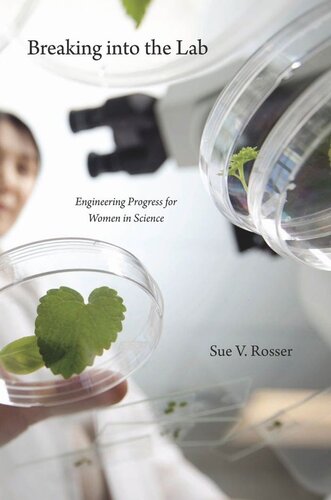

Most ebook files are in PDF format, so you can easily read them using various software such as Foxit Reader or directly on the Google Chrome browser.
Some ebook files are released by publishers in other formats such as .awz, .mobi, .epub, .fb2, etc. You may need to install specific software to read these formats on mobile/PC, such as Calibre.
Please read the tutorial at this link: https://ebookbell.com/faq
We offer FREE conversion to the popular formats you request; however, this may take some time. Therefore, right after payment, please email us, and we will try to provide the service as quickly as possible.
For some exceptional file formats or broken links (if any), please refrain from opening any disputes. Instead, email us first, and we will try to assist within a maximum of 6 hours.
EbookBell Team

0.0
0 reviewsWhy are there so few women in science? In Breaking into the Lab, Sue Rosser uses the experiences of successful women scientists and engineers to answer the question of why elite institutions have so few women scientists and engineers tenured on their faculties. Women are highly qualified, motivated students, and yet they have drastically higher rates of attrition, and they are shying away from the fields with the greatest demand for workers and the biggest economic payoffs, such as engineering, computer sciences, and the physical sciences. Rosser shows that these continuing trends are not only disappointing, they are urgent: the U.S. can no longer afford to lose the talents of the women scientists and engineers, because it is quickly losing its lead in science and technology. Ultimately, these biases and barriers may lock women out of the new scientific frontiers of innovation and technology transfer, resulting in loss of useful inventions and products to society.